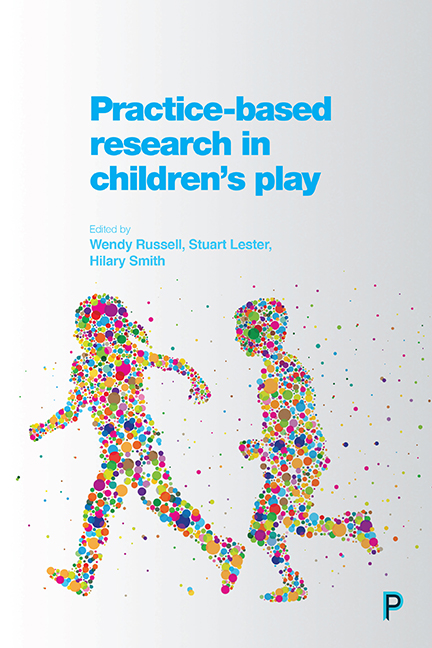Book contents
- Frontmatter
- Contents
- List of figures
- Notes on contributors
- Acknowledgements
- Foreword
- One Perspectives on play research: the practice-theory-research entanglement
- Part One Then and now: historical perspectives
- Part Two Here and there, this and that: spatial and creative perspectives
- Part Three Playfulness and wellbeing
- Closing thoughts
- Appendix: The Playwork Principles
- Index
Two - Nostalgia and play
Published online by Cambridge University Press: 05 April 2022
- Frontmatter
- Contents
- List of figures
- Notes on contributors
- Acknowledgements
- Foreword
- One Perspectives on play research: the practice-theory-research entanglement
- Part One Then and now: historical perspectives
- Part Two Here and there, this and that: spatial and creative perspectives
- Part Three Playfulness and wellbeing
- Closing thoughts
- Appendix: The Playwork Principles
- Index
Summary
Introduction
This chapter describes a small-scale study that explored older generations’ memories and feelings of nostalgia about their own childhood play experiences and compared these with their ideas about children's play today. Alongside this, children's own accounts of playing in the same town in the Welsh Valleys were collected and set against adult memories and beliefs about contemporary conditions for playing. A technique regularly employed by playwork professionals in training and advocating for the child's right to play is to ask adults to remember how they played as children and the joy they gained from this experience, invoking emotionally charged memories. Playworkers are also encouraged to use their own memories as a means of reflecting on their practice to improve the quality of provision, alongside intuition, evidence from the literature and experience of working with children (Hughes, 2001). This chapter argues that a deeper appreciation of how memory is intricately entwined with affect, emotion and place allows for a more nuanced approach to using memory as an effective advocacy tool. In the study described here, this was explored through semi-structured interviews with children and adults who had grown up in the same town, alongside the use of nostalgia measures of the adults’ accounts. As Labaree (2016) notes, self-reporting can have limitations as a research method given the potential for selective memory, telescoping (right memory wrong timescale), attribution (attributing negative outcomes to external forces or to other people) and exaggeration. However, this study was less concerned with the accuracy of memory and more with what memory does in terms of giving meaning to children's play experiences today. This required an engagement with the affective registers of memory, and this was explored through the literature on and research approaches to nostalgia.
Memory makes us what we are, and along with emotion/ affect it forms the interrelating processes of our ongoing lives…We are conglomerations of past everyday experiences, including their spatial textures and affective registers. Memory should not be seen (simply) as a burden of the past, rather it is fundamental to ‘becoming’, and a key wellspring of agency, practice/habit, creativity and imagination. (Jones and Garde-Hanson, 2012, p 8)
Memory studies cover a wide field of disciplines. As Jones and Garde- Hansen (2012) note, memory is intimately connected to place, identity and emotion/affect.
- Type
- Chapter
- Information
- Practice-Based Research in Children's Play , pp. 19 - 34Publisher: Bristol University PressPrint publication year: 2017



